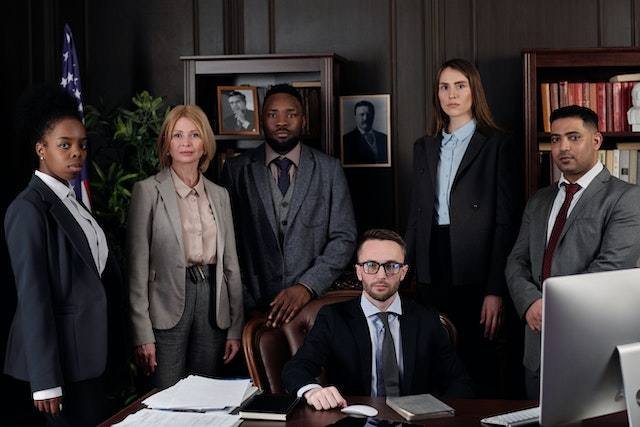Dallas stands as a testament to a blend of rich historical roots and modern aspirations. With its thriving businesses, diverse cultural attractions, and a pulsating urban rhythm, the city attracts both residents and visitors in droves. This growth is mirrored in its expansive network of roads and highways, which, while facilitating movement and commerce, also come with inherent challenges.
Daily, countless vehicles traverse these pathways, making accidents an unfortunate yet common reality. For those involved, the immediate shock often followed by a complex web of legal, medical, and insurance-related intricacies. It’s during these trying times that the guidance of an experienced car accident lawyer serving Dallas proves indispensable, offering clarity and support to victims when they need it the most.
The Dallas Driving Landscape
The streets and highways of Dallas tell a story of the city’s growth and evolution. Meandering roads in quaint neighborhoods like Bishop Arts District or Deep Ellum carry the weight of history, often lined with preserved architectural gems from the past. Contrastingly, the modern expressways, like the Dallas North Tollway or LBJ Freeway, showcase the city’s expansion and its burgeoning status as a commercial hub.
Yet, this amalgamation of the old and new brings its own set of challenges. In historic areas, narrow lanes and limited parking spaces can test a driver’s patience and skill. The newer regions, while spacious, often come with their own set of problems: high-speed zones, intricate exit patterns, and sudden merges.
Furthermore, Dallas’s unpredictable weather plays a significant role in the driving experience. A sunny morning can swiftly turn into an afternoon of torrential rain, affecting road conditions and visibility. The occasional winter ice storm, a rarity but not unheard of, can render roads slippery and treacherous. For Dallas drivers, understanding and adapting to these diverse conditions is not just a skill—it’s a necessity.
Common Causes of Accidents in Dallas
Dallas, with its bustling city life and sprawling suburbs, witnesses a high volume of vehicular traffic each day. While many commutes go smoothly, there are certain recurring factors that contribute to accidents in the region. Understanding these can help drivers stay vigilant and reduce risks. Some common culprits behind Dallas accidents are:
- Distracted Driving: This remains a top concern. Whether it’s texting, taking a call, adjusting the radio, or using navigation apps, momentary lapses in attention can lead to catastrophic results.
- Driving Under the Influence: Despite strict laws and awareness campaigns, instances of driving after consuming alcohol or drugs still persist, making roads unsafe for all.
- Traffic Rule Violations: Running red lights, not stopping at stop signs, or speeding are commonplace behaviors that significantly enhance accident risks.
- Road Conditions: Dallas roads, especially in older neighborhoods or areas undergoing construction, can be riddled with potholes, inadequate signage, or sudden lane closures. These can catch drivers off guard, leading to mishaps.
- Weather-Related Challenges: Dallas’s unpredictable weather, from sudden downpours to icy conditions, can make roads slippery and vision unclear, demanding extra caution from drivers.
Being aware of these common causes and proactively countering them can make all the difference in ensuring a safer driving experience in Dallas.
The Aftermath: Immediate Steps to Take
The immediate aftermath of an accident can be a flurry of confusion, shock, and stress. Knowing what to do in these crucial moments can not only ensure the safety and well-being of all parties involved but can also protect your rights and interests in the long run. Here’s a step-by-step guide to follow if you find yourself in such an unfortunate situation with Accident Lawyer:
- Check for Injuries: Before anything else, ascertain if you or anyone else involved in the accident has sustained injuries. If someone is seriously injured, avoid moving them unless they are in immediate danger.
- Move to Safety: If possible, and without causing further harm, move vehicles to a safe spot, away from the flow of traffic. Switch on hazard lights to alert other drivers.
- Call the Authorities: Dial 911 to report the accident. Even if the accident is minor, a police report can be invaluable for insurance and legal purposes later on.
- Document the Scene: Take pictures of the accident scene, damages to vehicles, injuries, road conditions, and any relevant road signs. These can serve as crucial evidence.
- Gather Witness Details: If there are bystanders or witnesses, collect their names and contact information. Eyewitness accounts can provide an objective perspective on the incident.
- Seek Medical Attention: Even if you feel fine, it’s essential to get checked by a medical professional. Some injuries, like whiplash, might not manifest immediately.
- Report to Insurance: Notify your insurance company about the accident. Provide them with the basic details but avoid making definitive statements until you’ve consulted with an attorney.
- Consult with a Lawyer: Before diving deep into insurance claims or potential legal battles, seeking advice from an experienced attorney can provide clarity and direction.
Navigating the Legal Waters
The aftermath of a car accident often plunges victims into a maze of legalities. For those unfamiliar with the intricacies of law, the landscape can be daunting. This is where the role of a car accident lawyer becomes paramount. With their specialized knowledge, they demystify the complexities and lay out a clear path forward.
Insurance claims, often the first hurdle, are rife with jargon and procedures that can confound the uninitiated. Lawyers step in, ensuring that claims filed correctly and that insurance companies don’t undervalue the damages. Their expertise in negotiation can make a significant difference in the compensation received.
Moreover, should the need arise, these attorneys are prepared to take matters to court. They meticulously collect evidence, liaise with witnesses, and build a robust case. Throughout this journey, they stand by their clients, providing reassurance and guidance at every turn.
In essence, an experienced car accident lawyer doesn’t just represent; they advocate, educate, and support. They transform a potentially overwhelming process into a navigable journey, always prioritizing their client’s best interests.
Accidents, as the saying goes, happen. But with the right knowledge, precautions, and expert guidance, their impact can be mitigated. Dallas’s roads may be challenging, but with awareness and the support of dedicated professionals, they can be navigated safely and confidently.




